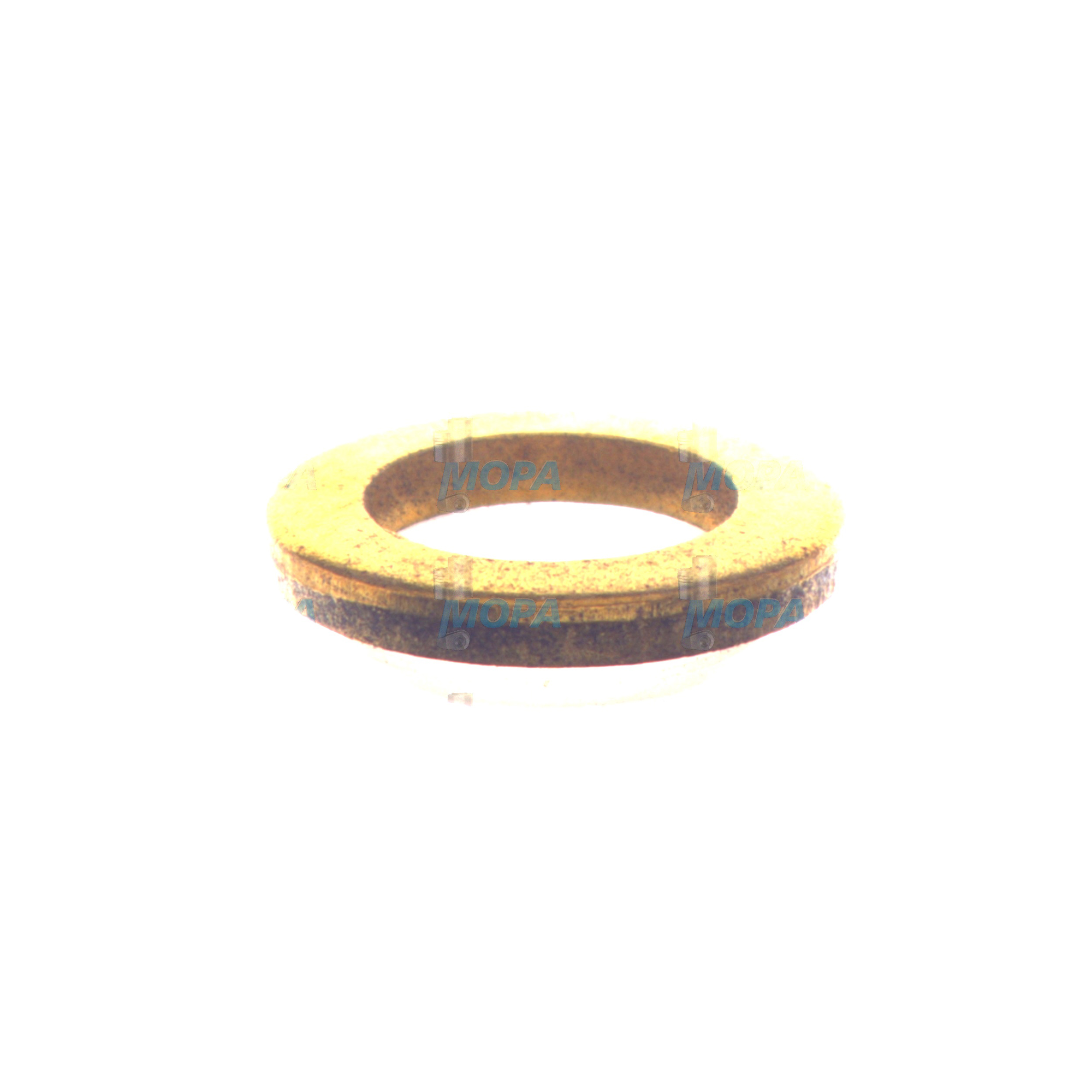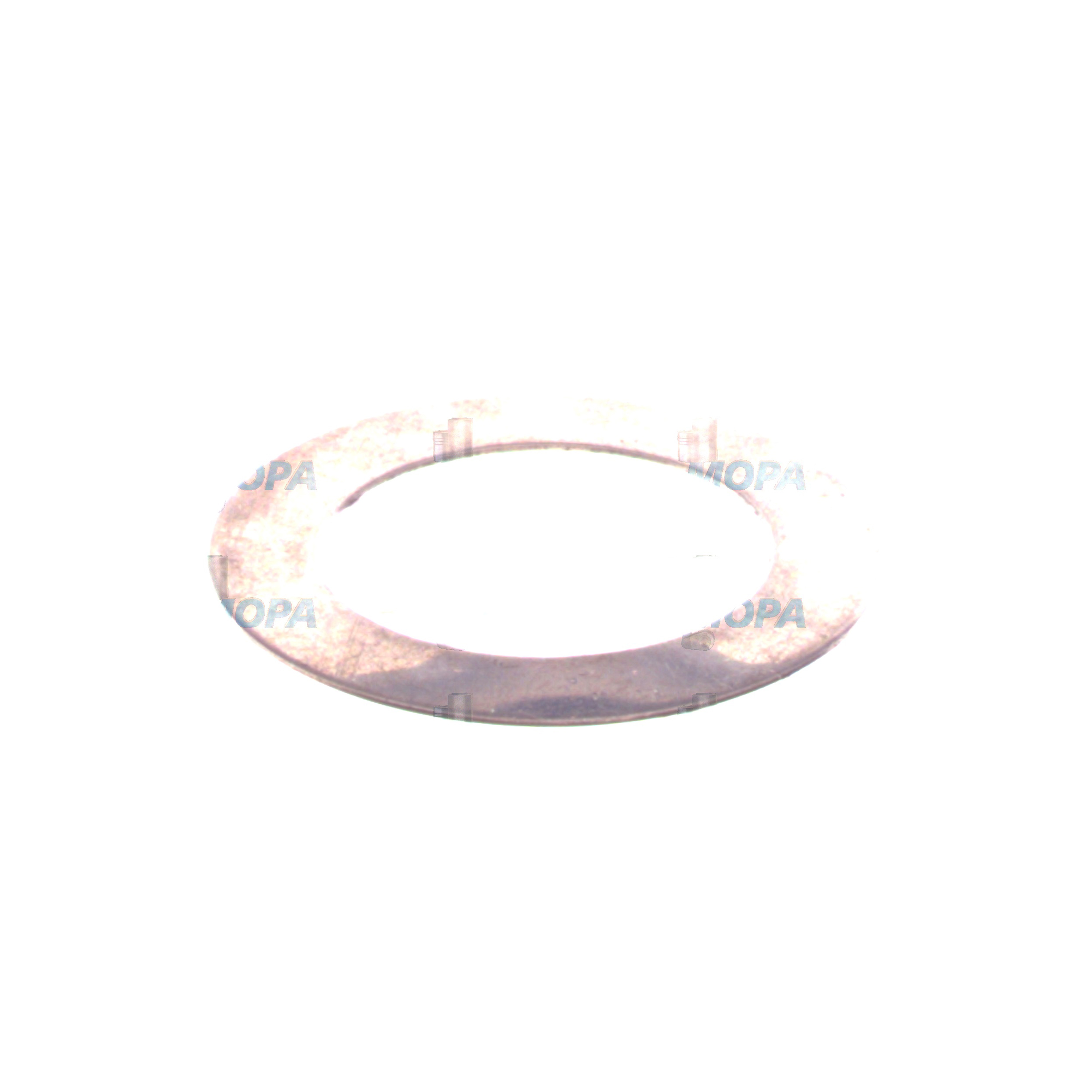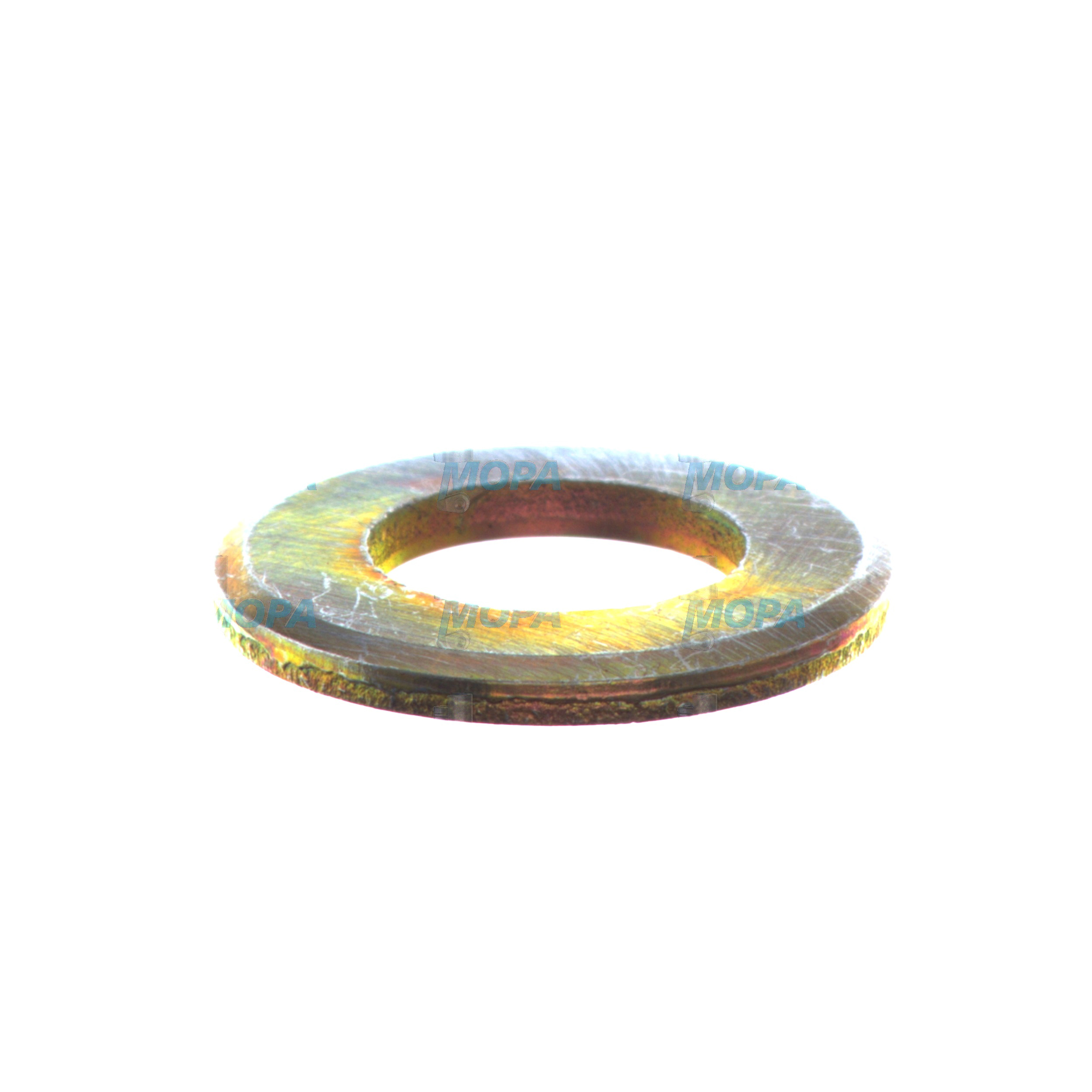WASHER components for marine and diesel engines
Washers are compact yet essential machine elements that sit between a fastener and the component surface. In engine construction they perform far more than a basic spacing role: they distribute loads, stabilize clamp force, protect mating surfaces, and, in sealing variants, keep fluids where they belong. In marine and diesel engines—where high bolt loads, thermal cycling, and vibration are the norm—the right washer specification directly impacts performance, efficiency, and safety.
Within large-bore diesel and gas engines, washers are found under cylinder head nuts, main bearing cap bolts, engine foundation bolts, turbocharger brackets, exchanger covers, fuel and lube-oil line banjo bolts, and exhaust manifold joints. From hardened flat types to copper crush and bonded sealing designs, these components are engineered to control friction, preserve preload, and maintain leak-free joints across long service intervals.
WASHER function in engine assemblies
At the heart of reliable bolted joints is consistent clamp load. A washer provides a stable bearing surface with a predictable friction coefficient, improving torque-to-tension correlation during assembly and re-torque. By spreading load over a larger area, a washer reduces localized stresses that can lead to surface brinelling, fretting, and loss of preload. In applications such as a WASHER marine engine cylinder head joint or a WASHER diesel engine exhaust connection, hardened flat washers minimize embedment, while spring and conical (Belleville) types compensate for relaxation and thermal expansion. Sealing washers—copper crush or elastomer-bonded—create radial or face seals that protect against fuel, coolant, and oil leaks.
The result is secure fastening under vibration and thermal cycling, improved alignment, leak integrity, and repeatable maintenance outcomes. Whether you need a WASHER OEM parts kit for a fuel rail banjo bolt or a hardened washer set for a generator set flywheel, the specification defines how reliably torque becomes clamp load and how long that clamp load is retained in service.
WASHER types and materials for engines
Engine builders deploy multiple washer families based on location and duty:
• Hardened flat washers (e.g., HV 200–300 class) under high-strength bolts for structural joints and heads
• Conical/Belleville and wave washers to maintain preload under thermal cycles and vibration
• Serrated/wedge-lock styles to resist loosening in high-vibration auxiliaries
• Copper crush washers for injectors, banjo bolts, and high-pressure fuel/oil lines
• Bonded sealing (metal + elastomer) for cover plates, coolers, and instrumentation ports
• Shim washers for precision alignment of accessories and couplings
Typical materials include quenched-and-tempered steels, stainless grades for corrosion resistance, copper and aluminum for deformable sealing, and nickel alloys for high-temperature zones. Surface treatments such as zinc-nickel, phosphate with dry-film lubricant, or PTFE-like coatings tune friction and corrosion performance. Dimensional and hardness control are central, as deviations can upset torque-tension relationships or compromise sealing.
- · Distributes load, preserves clamp force.
- · Controls friction for accurate torque-to-tension.
- · Compensates for relaxation and vibration.
- · Provides leak-tight sealing for fluids and gases.
- · Protects mating surfaces from damage.
- · Enables repeatable assembly and service.
Why the WASHER matters for reliability and service life
Engines face repetitive start-stop cycles, temperature gradients from cold start to full load, and constant vibration. Without the correct washer hardness, geometry, and surface finish, joints can suffer embedment and loss of preload. The downstream effects are costly: fasteners back off, gasket stresses fall below design limits, and leakage begins. In fuel systems this may show as pressure decay or injector misfire; in lube and coolant circuits as oil film starvation or hot spots; in exhaust paths as manifold warpage and turbocharger flange leaks.
Incorrect or worn washers also accelerate fretting and galling, creating debris that damages threads and sealing faces. Mismatched materials can drive galvanic corrosion—especially in salt-laden marine environments—further undermining clamp integrity. In extreme cases, a compromised WASHER diesel engine main bearing cap joint can lead to misalignment and elevated bearing temperatures. Proactive selection and scheduled replacement of washers in critical joints is therefore a direct lever for uptime and extended engine life.
OEM spare parts suitable for WASHER: performance, reliability, and budget
Using OEM spare parts suitable for washers ensures the dimensional tolerances, hardness class, and coating specifications match the mating fasteners and engine joints. This preserves the intended friction window, so your applied torque produces the designed clamp load. Traceable metallurgy and heat treatment maintain compressive strength under peak loads, while proven sealing materials align with fuels, oils, coolants, and exhaust condensates across the specified temperature and chemical range.
Beyond technical alignment, OEM spare parts suitable for washers protect budgets: predictable assembly behavior reduces rework, proper sealing prevents fluid losses and contamination events, and durable materials extend service intervals. Standardized kits for engine types simplify inventory and shorten turnaround during dockings or planned shutdowns.
- · Correct hardness and thickness tolerance.
- · Coatings tuned for consistent friction and corrosion control.
- · Material compatibility with fuels, oils, and coolants.
- · Reliable sealing under pressure and temperature cycling.
- · Lower downtime through repeatable assembly outcomes.
- · Full traceability supports quality compliance.
MOPA as your partner for WASHER OEM parts
MOPA is an experienced and reliable partner for OEM spare parts Washers. We supply WASHER OEM parts for diesel and gas engines with a focus on speed, quality, and security in every transaction. Our network provides rapid access to hardened structural washers, copper crush and bonded seals, and specialty preload-control types for marine engine and power generation fleets.
Customers value fast order processing, consistent documentation, and dependable packing for shipboard or plant deliveries. With MOPA, purchasers and technical teams can consolidate multi-brand requirements, receive parts with the required certificates, and keep maintenance windows tight and predictable.
Conclusion: WASHER selection drives engine reliability
Washers may be small, but they are fundamental to clamp integrity, sealing performance, and long service life in marine and diesel engines. Choosing OEM spare parts suitable for Washers ensures the right materials, tolerances, and coatings—delivering stable performance, fewer leaks, and controlled costs over the life of the asset.




